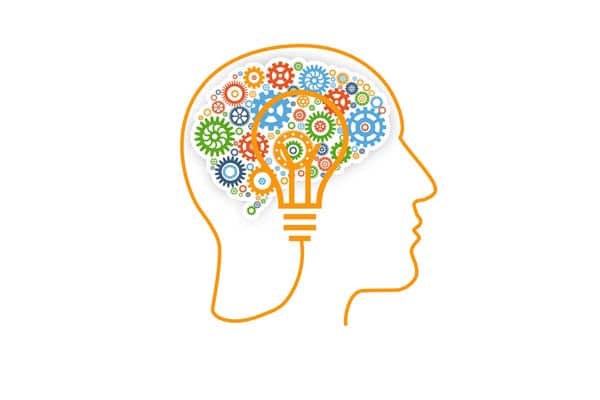Building Skills for Psychology and Behavioral Sciences
Developing the essential competencies for excellence in psychological practice and behavioral interventions
Core Clinical and Assessment Skills
The foundation of effective psychological practice lies in robust clinical and assessment abilities. These skills form the backbone of accurate diagnosis, treatment planning, and client support.
Essential Clinical Competencies
Assessment & Diagnostic Skills
- Structured interviewing techniques
- Psychometric test administration
- Behavioral observation methods
- Differential diagnosis capabilities
Therapeutic Intervention Skills
- Evidence-based treatment application
- Therapeutic alliance building
- Crisis intervention techniques
- Treatment progress monitoring
Al Mithaq Institute's Cognitive Behavioral Therapy (CBT) and Psychological Counseling diploma programs specifically focus on developing these fundamental clinical skills through both theoretical learning and supervised practical application.
Advanced Therapeutic Modality Competencies
Beyond foundational skills, today's psychology professionals benefit from specialization in specific therapeutic approaches. Mastery of diverse therapeutic modalities enables practitioners to tailor interventions to client needs.
Specialized Therapeutic Approaches
Developing expertise in specific therapeutic modalities involves understanding underlying theoretical principles, mastering technical aspects of the approach, and applying these methods appropriately across different client populations and presenting problems.
Theoretical Foundation
Understand principles
Technique Mastery
Practice core methods
Clinical Application
Real-world integration
Al Mithaq Institute offers specialized training in multiple therapeutic approaches, including Art Therapy, Family Counseling, and Neuro-Linguistic Programming, allowing practitioners to expand their therapeutic toolkit.
Cultural Competence and Diversity Awareness
In today's global and multicultural environment, psychology professionals must develop cultural competence to effectively serve diverse populations. This skill set goes beyond mere awareness to active cultural responsiveness.
Key Elements of Cultural Competence
- 1
Cultural Self-Awareness
Recognizing one's own cultural background, biases, and assumptions
- 2
Knowledge of Diverse Cultures
Understanding different cultural worldviews, values, and practices
- 3
Culturally Adapted Skills
Modifying assessment and intervention approaches to be culturally appropriate
Benefits of Cultural Competence
- •
Improved Therapeutic Alliance
Stronger client-therapist relationships based on respect and understanding
- •
More Accurate Assessment
Avoiding misdiagnosis due to cultural differences in symptom expression
- •
Enhanced Treatment Effectiveness
Interventions that resonate with clients' cultural values and beliefs
Al Mithaq Institute, situated in the multicultural hub of Dubai, integrates cultural competence training throughout its psychology and behavioral science programs, preparing professionals to work effectively in diverse settings.
Research and Evidence-Based Practice Skills
Contemporary psychology emphasizes the integration of research findings into clinical practice. Developing skills to critically evaluate research and implement evidence-based interventions is essential for effective practice.
| Research Skill | Application in Practice |
|---|---|
| Research Literature Review | Staying current with latest findings in specific areas of practice |
| Critical Appraisal | Evaluating quality and relevance of research to specific client scenarios |
| Outcome Measurement | Implementing validated measures to assess intervention effectiveness |
| Clinical Data Analysis | Using aggregated client outcomes to improve treatment approaches |
| Research Design | Conducting practice-based research to address specific clinical questions |
Evidence-Based Practice Model
Best Available Research
Clinical Expertise
Client Values & Preferences
Al Mithaq Institute emphasizes research literacy and evidence-based practice across all its psychology programs, ensuring graduates can apply the most current and effective interventions in their practice.
Technological Competence in Psychological Practice
As technology transforms the psychological landscape, practitioners must develop skills to ethically and effectively integrate digital tools into assessment, treatment, and practice management.
Digital Assessment & Intervention Tools
- Telehealth Platforms - Skills for effective remote therapy delivery
- Digital Assessment Tools - Administering and interpreting online evaluations
- Mobile Health Applications - Incorporating apps into treatment plans
- Virtual Reality Therapy - Using immersive environments for exposure treatments
Digital Practice Management
- Electronic Health Records - Maintaining secure, comprehensive client documentation
- Practice Management Software - Scheduling, billing, and client communication
- Data Security & Privacy - Implementing protocols to protect client information
- Online Professional Presence - Ethical marketing and communication
Ethical Considerations in Technology Use
-
!Client Privacy & Confidentiality
Ensuring secure communication and data storage across digital platforms
-
!Boundaries in Digital Communication
Maintaining appropriate professional relationships across multiple digital channels
-
!Digital Competence
Practicing only within one's level of technological skill and knowledge
Al Mithaq Institute's programs incorporate training in current technological applications for psychological practice, preparing professionals for the increasingly digital nature of behavioral healthcare.
Professional Communication and Collaboration
The ability to communicate effectively and collaborate with clients, colleagues, and other professionals is fundamental to successful psychological practice. These interpersonal skills enhance both client outcomes and professional development.
Key Communication Competencies
Active Listening
Clear Documentation
Empathic Response
Conflict Resolution
Interdisciplinary Collaboration Skills
Effective psychological practice often requires collaboration with professionals from various disciplines, including:
Developing skills for effective teamwork, clear communication of psychological concepts to non-specialists, and understanding the roles and perspectives of other disciplines enhances client care and professional effectiveness.
Al Mithaq Institute's programs emphasize the development of professional communication skills through role-plays, group projects, and practical training experiences that mirror real-world collaboration scenarios.
Ethical Practice and Professional Development
Beyond technical skills, psychology professionals must develop a strong ethical framework and commitment to ongoing professional growth. These meta-competencies ensure responsible practice and career longevity.
Core Ethical Competencies
Ethical Decision-Making
Applying ethical principles to complex clinical situations and resolving ethical dilemmas
Professional Boundaries
Maintaining appropriate therapeutic relationships and recognizing potential boundary issues
Informed Consent
Communicating treatment options, risks, and benefits effectively to ensure client autonomy
Professional Development Pathway
- 1 Reflective Practice - Systematically examining one's own work to identify strengths and areas for growth
- 2 Supervision & Consultation - Seeking guidance from experienced practitioners to enhance skills and address challenges
- 3 Continuing Education - Pursuing ongoing training to stay current with advances in the field
- 4 Professional Community Engagement - Participating in professional organizations and peer networks
Al Mithaq Institute integrates ethical training throughout its curriculum and models commitment to professional development through its faculty of experienced practitioners who maintain active engagement with the latest developments in their fields.
Frequently Asked Questions
For beginners, developing strong foundational skills in assessment, active listening, ethical practice, and basic therapeutic techniques is essential. These core competencies provide the framework upon which specialized skills can later be built. Al Mithaq Institute's introductory programs focus on establishing these fundamental abilities through a balance of theoretical learning and practical application.
Developing specialization requires a structured approach: first, obtain comprehensive training in the specific modality through recognized programs like those offered at Al Mithaq Institute; second, seek supervised practice opportunities to apply the techniques under guidance; third, join professional communities focused on that approach for ongoing learning; and finally, pursue advanced certification if available. Consistent practice, feedback, and continued education are key to mastery.
Today's psychology professionals should prioritize proficiency with telehealth platforms for remote service delivery, electronic health record systems for documentation, digital assessment tools, and basic data security practices. Additionally, familiarity with therapeutic apps and online resources that can supplement treatment is increasingly valuable. Al Mithaq Institute incorporates training in these digital competencies across its psychology programs to prepare practitioners for contemporary practice.







